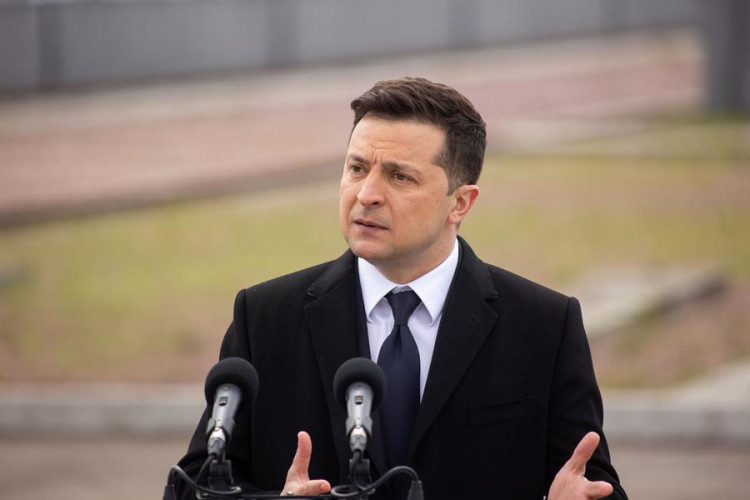President Volodymyr Zelenskiy confirmed on Thursday that Ukrainian forces had anticipated the Russian counteroffensive currently unfolding in the Kursk region, more than a month after Ukraine launched a surprise incursion across the border. This marks the first public acknowledgment of the renewed fighting, which has escalated tensions and underscored the ongoing volatility of the conflict between Russia and Ukraine.
Ukraine's cross-border operation, which began in early August, saw its troops swiftly capture a significant portion of western Russian territory in the Kursk region. This unexpected move was part of a broader strategy to shift the momentum of the war and divert Russian forces from the eastern front, particularly around the embattled town of Pokrovsk in Ukraine's Donetsk region.
Speaking at a news conference in Kyiv alongside Lithuanian President Gitanas Nausėda, Zelenskiy stated, "The Russians have begun counter-offensive actions. It is going according to our Ukrainian plan." His comments came as reports surfaced that Russian forces had recaptured 10 settlements in Kursk as part of their counteroffensive, although these claims have yet to be independently verified.
The Kursk offensive is seen as a critical juncture in the conflict, as it represents the first time Russian territory has been under foreign occupation since World War II. The initial Ukrainian gains in Kursk provided a much-needed morale boost for Kyiv, exposing vulnerabilities in Russia's defenses and seizing the initiative on the battlefield. However, the situation has since become more complex, with both sides digging in for a prolonged struggle.
Russia's response to the Ukrainian incursion was initially slow, with Moscow seemingly caught off guard by the bold move. The Kremlin's focus had remained on its operations in eastern Ukraine, particularly around Pokrovsk, where Russian forces have been attempting to break through Ukrainian defenses. The delay in responding to the Kursk incursion allowed Ukrainian forces to fortify their positions and prepare for the inevitable counterattack.
As fighting intensifies on multiple fronts, the humanitarian toll continues to mount. On Thursday, Ukrainian officials reported that Russian shelling in the frontline Donetsk region killed three workers from the International Committee of the Red Cross (ICRC) and injured two others. This marked the deadliest incident involving ICRC staff since a bomb blast in Yemen in 2020.
In addition to the casualties, Russian forces have targeted critical infrastructure in northern Ukraine, including a rail hub in the Sumy region and the city of Pokrovsk in Donetsk. The attacks have disrupted power and water supplies, leaving thousands of civilians without access to basic necessities. Donetsk regional governor Vadym Filashkin warned that the situation in Pokrovsk was dire, with more than 300 hastily drilled wells serving as the last source of drinking water for the city's remaining residents.
"The previous day, Russians destroyed a natural gas distribution station near Pokrovsk," Filashkin said. "Evacuation is the only choice for civilians." Over 20,000 people have fled Pokrovsk in the past six weeks as Russian forces creep closer to residential areas.
The renewed fighting in Kursk also has strategic implications for the broader conflict. By launching a counteroffensive in the border region, Russia may be seeking to alleviate pressure on its eastern front lines and regain control of lost territory. However, this could also stretch Russian forces thin, particularly as they continue to face fierce resistance in eastern Ukraine.
Meanwhile, Ukraine's ability to sustain its incursion into Kursk may be tested as Russian forces regroup and launch counterattacks. The situation remains fluid, with both sides jockeying for position and attempting to gain the upper hand.
In response to the escalating violence, the United States and Britain have pledged nearly $1.5 billion in additional aid to Ukraine, much of which will be used to restore electricity and other essential services. U.S. Secretary of State Antony Blinken highlighted the importance of this support, stating, "We're again seeing Putin dust off his winter playbook, targeting Ukrainian energy and electricity systems to weaponize the cold against the Ukrainian people."






